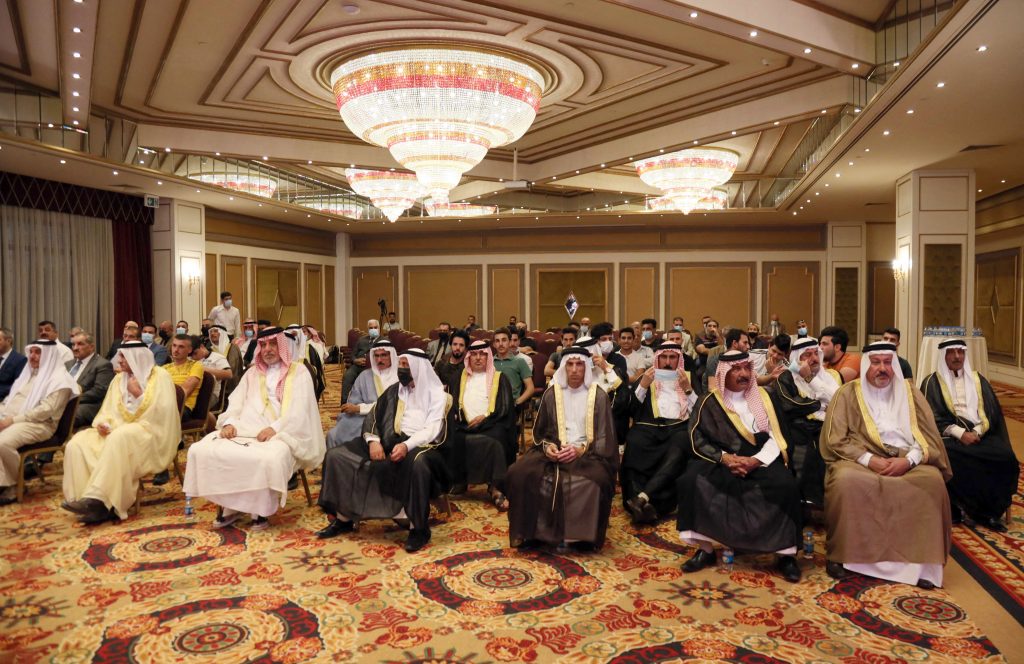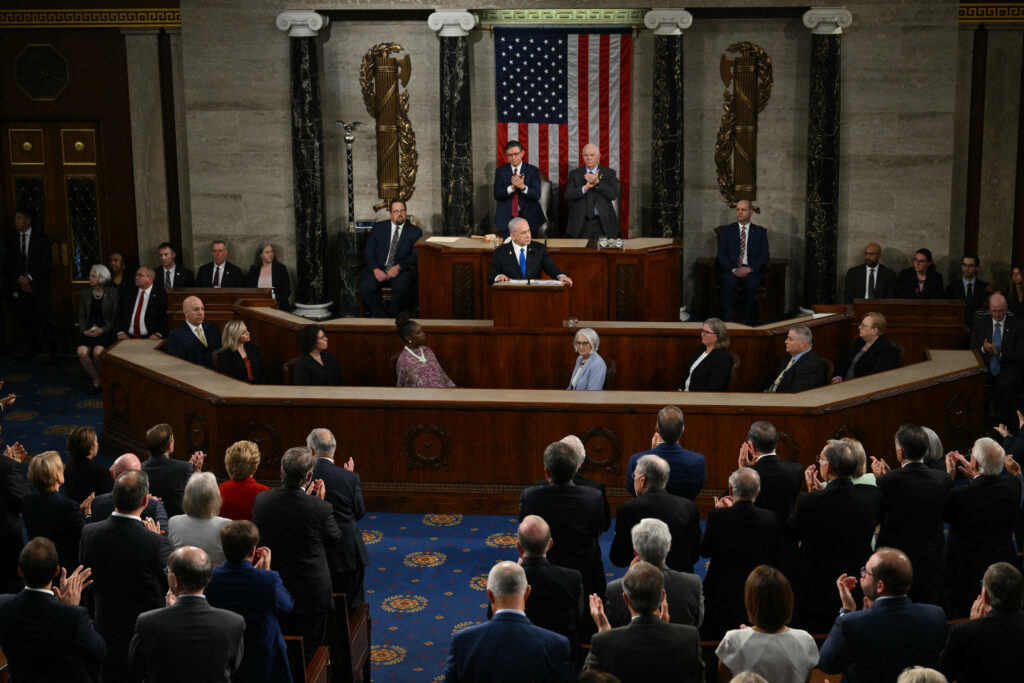Iraq Abraham Accords Event Stokes Iranian Fears of Israeli Encirclement
- - October 13, 2021

By Gyorgy Busztin, Visiting Research Professor, MEI-NUS
The New York-based Center for Peace Communications, a little-known think-tank dedicated to promoting peace between Israel and the Arab world, pulled off an unprecedented feat on 24 September 2021: A conference in Iraq which called for the country to join the Abraham Accords.
By itself, the conference would seem a striking initiative, particularly given Iraq’s historic enmity towards Israel – a country it is technically still at war with. But the venue of the conference, the choice of participants, and the timing all ensured that it would amount to a deadly publicity stunt. Its effects will reverberate for some time, and not just within Iraq.
Since the event, the Iraqi government has ordered the arrest of several participants. Death threats have also been issued against them, and Iran-aligned parties are also baying for blood. “Doomed to failure” would have been an apt description of the Center for Peace Communications’ effort.
There are several reasons for this. The first was the venue – Erbil, the capital of the Kurdish Autonomous Region, which is hardly representative of Iraq. Worse, for much of Iraqi society, anything that emanates from the region is instinctively dismissed as fraudulent. The reverse is also true. The upshot is that an event in Erbil that purports to speak for most Iraqis will inevitably spark howls of protest.
The second reason for the failure was the way it unfolded. As the participants – a collection of tribal sheikhs led by Sheikh Wisam Hardan, head of the Awakening movement which battled Al Qaeda and the Islamic State alongside American troops – were taking their seats at the event, the Wall Street Journal published a commentary laying out the reasons Iraq should sign on to the Abraham Accords. It was purportedly written by Sheikh Wisam – except he denied it, and said he put his name to the piece without knowing what it contained. The episode amounted to an embarrassing volte-face.
Finally, the timing of the conference was awkward: It occurred barely two weeks before Iraqis went to the polls in snap election called under popular pressure. Already divided, Iraq certainly did not need to add another issue to crises it is already facing, or stir up sectarian resentment. All in, the Erbil conference achieved nothing, except to serve as a reminder of the volatility and danger inherent in Iraqi politics.
There has been much written about the conference in the days since news of it broke, with some heralding an ill-defined new age in Arab attitudes towards Israel, while others pounced on a chance to report old tropes about the “Zionist enemy”.
What is missing, however, is an examination of Iran’s reaction. At first glance, Tehran’s fierce denunciations of the event appear par for the course. The militias it has backed have urged action against “Zionist-American dens” and have accused participants of treason. More astute analysts, however, will note that something far more important is taking place: A new threat along its western border that adds to growing fears in Tehran that it is being encircled by Israel-aligned forces.
For some time now, Iran has been confident that its western flank has been secured, thanks to the presence of powerful militias it has backed in Iraq. That the conference was held Erbil shatters this façade. Tehran has repeatedly accused the Kurdish Regional Government of harbouring rebel Iranian Kurds, and has also issued thinly-veiled threats against providing a platform for “enemies of Iran”. A conference in Iraq to discuss normalisation would not have gone down well.
Iran’s fears of encirclement have been fanned by the Abraham Accords, which gives Israel a footing to its south in the United Arab Emirates, and a spike in tensions with its northern neighbour, Azerbaijan, in recent months. It does not help that this tense nexus is exacerbated by the Turkish-Iranian rivalry in the region, with Ankara clearly having the upper hand in Central Asia, whose countries it woos based on common a Turkic heritage. Things got to the point where Azerbaijan recently hosted joint military manoeuvres with Turkey and Pakistan – which has its own problems with Tehran over its support for the Taliban. In response, Iranian held its own exercises along the border, which began on 1 October, making things worse. Recently, questions have also arisen about an Israeli military presence in Baku.
The roots of this recent round go back, of course, to the bloody, 44-day conflict between Azerbaijan and Armenia over Nagorno-Karabakh. While Israel and Turkey backed Azerbaijan, Iran supported Armenia. Tehran picked the wrong horse: Israeli and Turkish weapons helped the Azeris rout the Armenians, and Baku’s loyalties now rest firmly with its backers. In addition to having to watch its northern flank carefully, Iran now also has to worry about its restive Azeri minority. It all adds to a multitude of strategic problems for the Islamic Republic.
The call for Iraq to sign on to the Abraham Accords was a clear non-starter. The furious reaction from Tehran was, however, a response to more than this moribund and untimely initiative. For Iran, the spectre of Israeli encirclement is drawing closer. The Erbil conference has stoked these fears, and was an unnecessary ingredient in an already-simmering region.
About the Author
Dr Gyorgy Busztin is Visiting Research Professor at the Middle East Institute, NUS.
A career diplomat and an academic, he served, between 2001 and 2011, as Hungary’s ambassador to Indonesia and subsequently, Iran. In 2011, Dr Busztin was appointed deputy envoy of the United Nations in Iraq, responsible for the political, analytical, electoral and constitutional support components of the UN’s mission in Iraq. He served at the level of assistant secretary-general until October 2017.
Dr Busztin holds a degree in Arabic history from Damascus University, Syria and a Doctorate in Arabic language and Semitic philology from Lorand Eotvos University in Hungary. In addition to his native Hungarian, he speaks English, French, Arabic, Farsi/Dari (Persian), Malay (Indonesian) and Russian. He believes strongly in political and intercultural dialogue and has engaged leading politicians, intellectuals, religious leaders and representatives of civil society.
Image caption: On 24 September 2021, a US think-tank Center for Peace Communications organised a conference in Erbil, capital of the Kurdistan autonomous region in Iraq, which saw more than 300 Iraqis including tribal leaders, attend it. Photo by Safin HAMED / AFP.
More in This Series
More in This Series
- Jean-Loup Samaan
- - July 11, 2024
- Aisha Al-Sarihi, Ehsan Rasoulinezhad, Jinseok Sung
- - June 20, 2024








